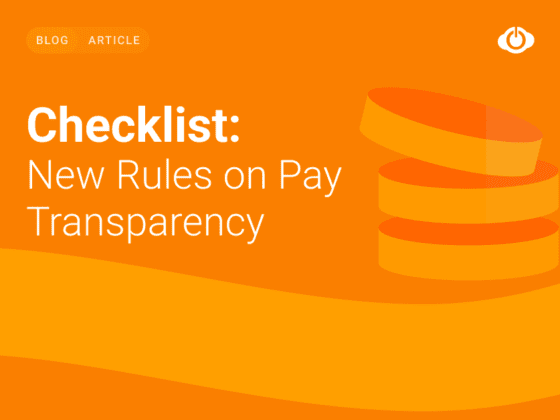What to Know about EU’s Mandatory Time Tracking
As of 1 July 2024, the EU’s law regarding mandatory time tracking of employees’ working hours will be enforced. But how can companies comply and track time effectively without it feeling like excessive control? Our guide offers insights on effective time registration and maximizing the benefits of HR-ON Staff.
What does time tracking mean for you and your company? The new rules for tracking employees’ working hours require all businesses to implement a time-tracking system or software where employees can track their work hours.
This requirement stems from a ruling by the EU Court of Justice following the Deutsche Bank case in 2019. It now mandates that companies accurately record working hours. Therefore, companies should familiarize themselves with the law, update GDPR processes, and have everything in place by 1 July.
At first glance, the legislation may spark discussions about how time registration aligns with flexible working hours, which many companies have adopted. Pros and cons can be addressed in the workplace, allowing everyone to express their thoughts.
You might also like: 5-Step Guide: How to Enhance Mental Health at Work
5 Key Points from the New Time Registration Law
Discover 5 crucial aspects of the new legislation that are essential to understand. While we’re not legal experts and can’t offer specific advice, we recommend consulting the full legislation and its latest amendments for comprehensive details. Here’s a brief overview:
1) Comprehensive Coverage of Work Hours: The law mandates accurate recording of all work hours, encompassing breaks and overtime.
2) Documentation of Work Hours: Companies are required to maintain records of employees’ work hours for a specific period.
3) Employee Access to Personal Time Data: Employees should have access to their own time registration data to ensure accuracy.
4) Safeguarding Personal Information: Stringent security measures must be in place to protect employees’ personal data.
5) Ramifications of Non-Compliance: Businesses should be mindful of potential fines and other penalties for non-compliance with the law.
You might also like: Understand the Differences Between a Payroll and an HR system. Here Is Everything You Need to Know
Streamline Time Tracking with HR-ON Staff
Managing employee time tracking is a breeze with HR-ON Staff. Your team can easily log their work hours via the web interface, and for added convenience, you can invest in our StaffBuddy mobile app, seamlessly integrated with our HR system.
Our approach to time tracking is about empowerment, not surveillance. With Staff already simplifying your HR operations, every department and employee can effortlessly adopt our system. With user-friendly web-based time registration, customizable to your needs, and comprehensive daily and weekly overviews that meet EU legal requirements, you’ll be compliant by July 1, 2024.
HR-ON Staff isn’t just an HR system; it’s a complete solution for your workforce management needs. From digital signatures to seamless time tracking, we’ve got you covered.
HR-ON Staff Time Tracking: Designed With Employees in Mind
User-Friendly System
Uncomplicated time tracking with HR-ON Staff, compliant with EU legal requirements.
Balance Time
Every employee has a clear view of their weekly work hours, ensuring time awareness and clarity.
Easy Time Overview
Employees can also categorize work into projects, break types, and statuses with the system.
Register on the Go
Purchase StaffBuddy employee app, enabling employees to register time from anywhere, anytime.
If you want to learn more about time tracking with HR-ON Staff, you can book a demo and be contacted by one of our sales consultants. You can also calculate the price of our system for your company.
FAQ: 4 Quick Questions About Time Registration
Is time registration mandatory?
Yes, as of July 1st, time registration is mandatory in Denmark for most employees. Exceptions may apply, so it’s important to check the specific guidelines in the new law.
What does time registration entail?
Time registration involves documenting employees’ work hours, including start and end times, breaks, and possibly overtime. This is a crucial aspect of complying with the requirements of the new legislation.
What are the advantages of time registration?
There are several advantages to time registration, including accurate payroll, improved resource management, and adherence to the new working time regulations.
Who is required to register their time?
Nearly all employees are expected to register their time in accordance with the new law. However, certain exceptions may apply to “self-managed” individuals. We recommend consulting the new law text for precise information regarding exceptions and guidelines.





